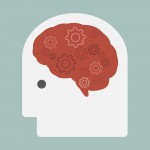Mark Smith
Mark is a psychotherapist who works as an IAPT High Intensity clinician for a leading service provider in the East Midlands. He has a great deal of experience working with patients with common mental health issues and is particularly interested in depression, generalised anxiety, addictions, Personality Disorders and the use of outcome measures in psychotherapy and mental health disorders. He holds a PhD and is an accredited BACP therapist and an accredited IPT practitioner.









